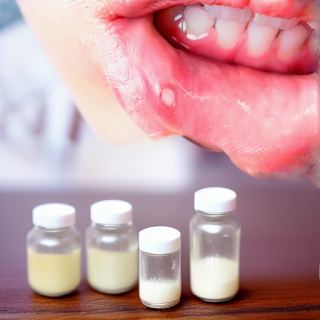What to do when you have mouth sores
When canker sores appear, the first thing to do is to find their origin.
Mouth sores or aphthous ulcers are small ulcers that occur in the mucosa of the mouth, which appear frequently and are very annoying for those who suffer from them. They are usually 3 to 5 millimeters in diameter, their color is whitish, and they appear surrounded by a red area.
When canker sores appear, the first thing to do is to find their origin. The reason or reasons that cause them are unknown, although they have been associated with several factors that we will now mention. Their most frequent location is on the inner part of the lips and tongue.
Generally, canker sores usually disappear in about 8 to 10 days. Still, if this is not the case, periodontists advise you to immediately consult a dentist to rule out a more severe lesion such as oral cancer.
Why do mouth sores appear?
As we indicated at the beginning, there is no clearly identified cause for the origin of these lesions. The dental associations warn of several possible reasons or factors that may predispose to the appearance of canker sores;
- In women, premenstrual tension, as a consequence of the hormonal changes of menstruation, can be a cause.
- Decreased immunity could also be a reason. Therefore, it is believed that stress could cause them.
- In addition, some medications or treatments, such as chemotherapy, can cause canker sores.
- Any dental process affecting the mucosa is also likely to cause aphthous ulcers.
- Finally, nutritional deficiencies, especially the lack of iron, folic acid, and vitamin B12, the abuse of acidic foods or foods that decrease the protection of the mucosa, and the immune alterations of the organism when fighting bacteria, cause damage to the mucosa and can cause the appearance of canker sores.
How to cure a canker sore?
Reinforcing oral hygiene is the most effective way to reduce symptoms. This maxim always applies to any issue related to our mouth, but it must be repeated.
Periodontists also remind you that your dentist may prescribe specific mouthwash or a topical anesthetic.
Eating dairy products and ice cream and avoiding very salty, spicy, or acidic foods can help to reduce inflammation.

